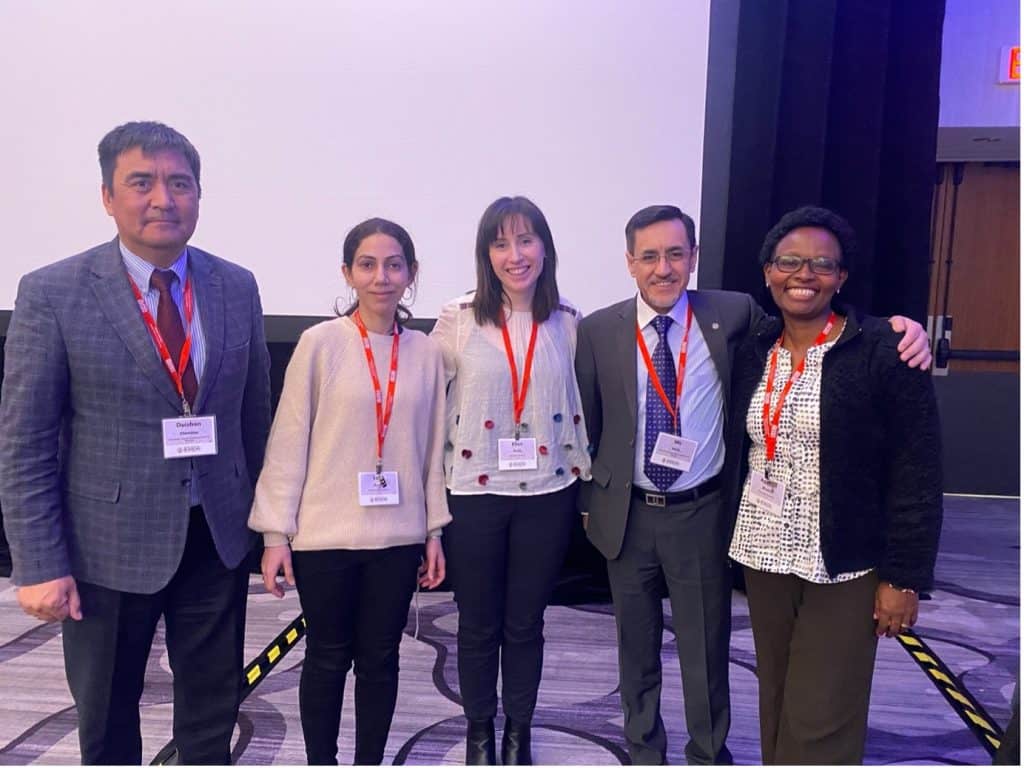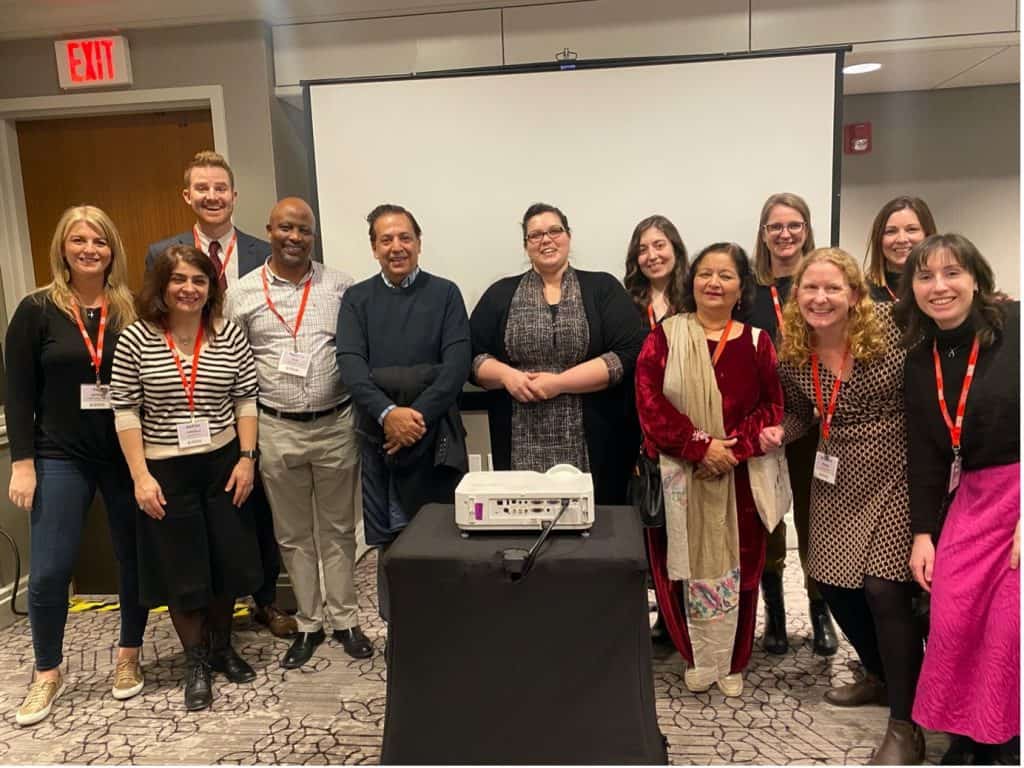In February 2023, Schools2030 teams and partners joined hundreds of international delegates at this year’s Comparative International Education Society (CIES) conference in Washington DC, under the theme “Improving Education for a More Equitable World”. Schools2030 was active throughout the five-day event, presenting in four panels and two symposia to showcase how our Three-Step Model is catalysing school-level innovation for improved education quality and equity.
On the first day of the CIES conference, Schools2030 Global Research Officer Ellen Smith and Bethiel Girma-Holton, Programme Officer at OAK Foundation, presented their paper “Learning differences, equity and inclusion: A review of policies and practices across ten countries’. The presentation explored findings from an in-depth study across Schools2030 programme countries that sought to understand the policy environment as well as classroom practices that support students with learning disabilities. Ellen and Bethiel pointed to a set of programmatic recommendations, including bridging policy-practice gaps through targeted teacher professional development support. The session attracted a sizeable audience of engaged education practitioners, researchers and policymakers, including Mr. Ulanbek Mambetakunov, Minister of Education and Science of the Kyrgyz Republic (see top image).

On day two of the conference, Schools2030 Research Partners from Zizi Afrique Foundation, ITA Pakistan and University of Nazarbayev came together for a symposium under the theme “How might a Focus on the Whole Child Advance Equitable Learning for All?”. These partners shared some of the preliminary findings from their research, highlighting how teachers, students and parents understand and value social-emotional learning and presenting early evidence that improvement in non-academic skills correlates to improved academic performance in numeracy and literacy. Questions posed by the audience prompted rich discussion on the role of parents and the community in promoting holistic skills and how we might build better school-home and school-community ties.
On the third day of the conference, Schools2030 Global Programme Manager Dr Bronwen Magrath joined a roundtable discussion with colleagues from HundrED, Results for Development and Teach for All focussed on the role of school networks in improving educational quality and equity. Bronwen spoke about how Schools2030 is fostering communities of practice and knowledge-sharing among educators and education system leaders through Human-Centred Design and through our Faved.org portal. Participants discussed the importance of engaging diverse stakeholders in education networks to ensure that teachers, school leaders, policymakers and researchers are working together towards our shared goal of equitable, quality education for all.
The final session of the CIES conference featured a mix of Schools2030 assessment and research partners from Tanzania, Pakistan, Portugal and Afghanistan who spoke about the work they are leading to develop holistic assessment tools to help teachers measure what matters for equitable, quality learning. Despite the diversity of countries represented in this panel, speakers were able to share common challenges as well as share their successes of working with teachers to develop assessment tools that are useful, usable and contextually relevant.

In addition to these Schools2030 sessions, Aga Khan Foundation colleagues and partners were active across many other panels and events during CIES. We were thrilled to be able to meet together and to share our successes and learning with the wider global education community. We look forward to continuing these conversations at the Schools2030 Global Forum in Porto, which will also focus on education equity through the guiding question: “How might we foster more inclusive schools, equitable education systems and pluralistic learning societies for all?”
